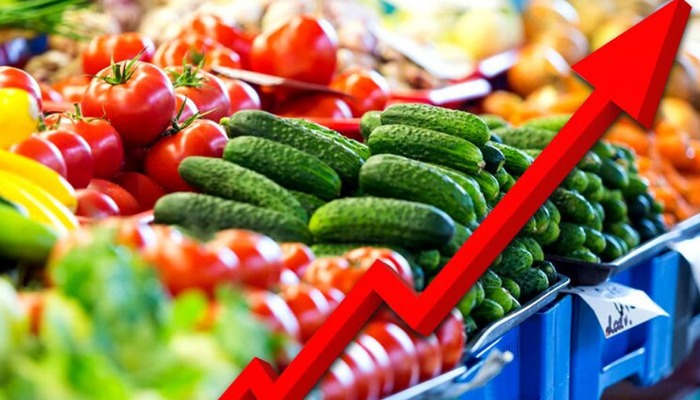According to the latest data on inflation released by the Nigerian Bureau of Statistics, residents of Kogi, Kwara and Lagos state paid highest for food consumptions in the month of October, following the surge of inflation to 27.33 percent, and food inflation to 31.52 percent.
NBS holds that the food prices rose the highest in Kogi State by 41.74 percent, followed by Kwara at 38.48 percent.
Lagos came third as food prices spiked 37.37 percent.
“In October 2023, food inflation on a year-on-year basis was highest in Kogi (41.74 percent), Kwara (38.48 percent) and Lagos (37.37 percent),” the report stated, “while Borno (24.41 percent), Kebbi (24.90 percent) and Jigawa (25.10 percent) recorded the slowest rise in food inflation on a year-on-year basis.”
The inflation rate, largely driven by food prices, quickened in October for the 10th consecutive month in 2023.
It rose to 27.33 percent from 26.72 percent in the previous month, according to the Consumer Price Index (CPI), which measures changes in prices of goods and services.
The CPI report shows that food and non-alcoholic beverages contributed the most (14.16 percent) to the increase in headline inflation.
Food inflation rose 31.52 percent in October from 30.64 percent in the previous month.
“The rise in food inflation on a year-on-year basis was caused by increases in prices of bread and cereals, oil and fat, potatoes, yam and other tubers, fish, fruit, meat, vegetables, milk, cheese, and eggs,” the NBS said.
The rising prices of food and other goods and services are putting a strain on consumers’ budgets, making it increasingly difficult for many to afford basic necessities.
A recent survey by SBM Intelligence found that Nigerians were spending 97 percent of their monthly income on food, with Kogi, Kwara, and Lagos residents being the worst hit for the month of October.
According to the NBS, the contributions of items on the divisional level to the increase in the headline index are food and non-alcoholic beverages (14.16 percent), housing, water, electricity, gas and other fuel (4.57 percent); clothing and footwear (2.09 percent); transport (1.78 percent); and furnishings, household equipment and maintenance (1.37 percent).
Others are education (1.08 percent); health (0.82 percent); miscellaneous goods and services (0.45 percent); restaurant and hotels (0.33 percent); alcoholic beverage, tobacco and kola (0.30 percent); recreation and culture (0.19 percent) and communication (0.19 percent).
On a month-on-month basis however, October 2023 food inflation was highest in Yobe (5.35 percent), Sokoto (3.68 percent) and Jigawa (3.45 percent), while Edo (0.95 percent), Katsina (1.03 percent) and Rivers (1.10 percent) recorded the slowest rise in inflation on month-on-month basis.

